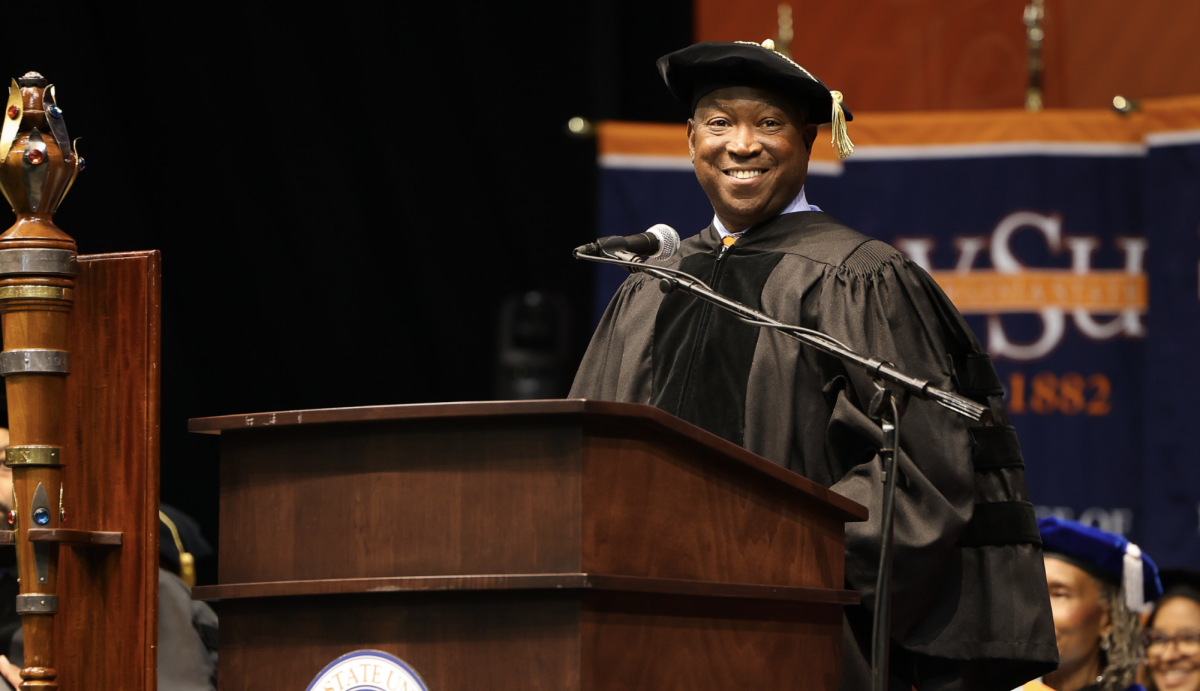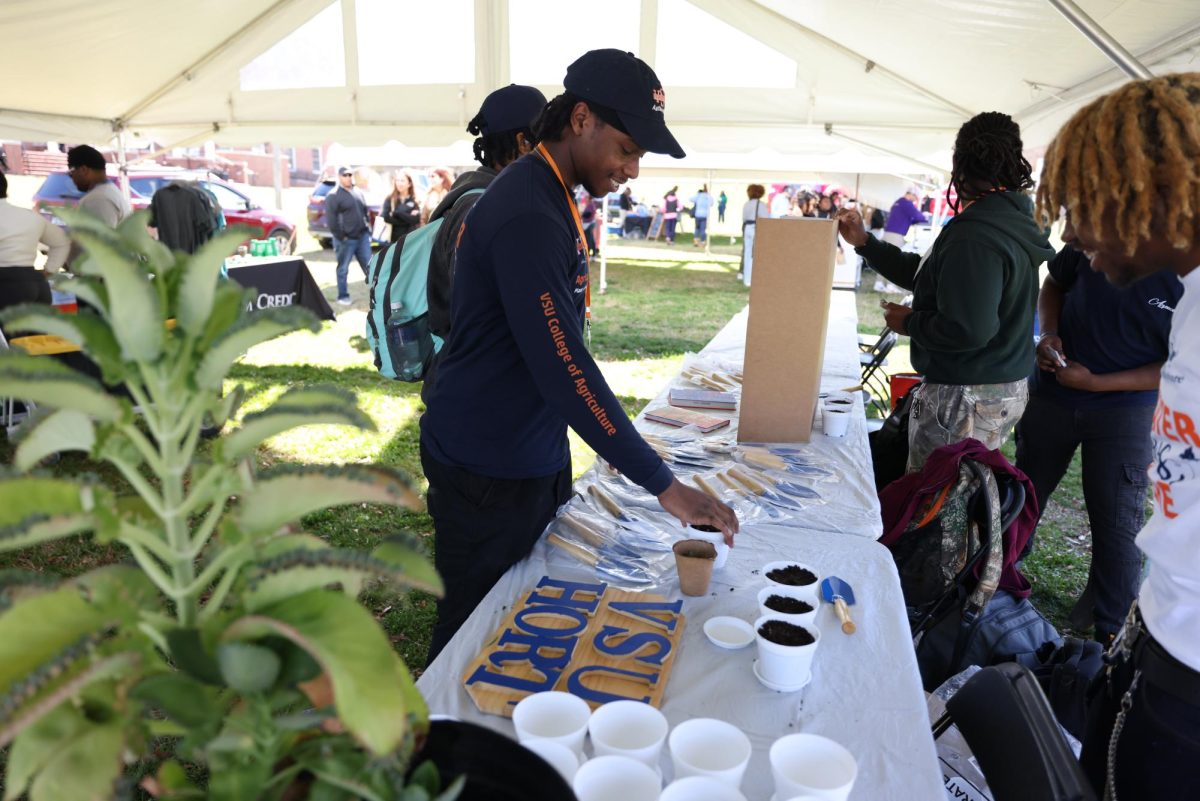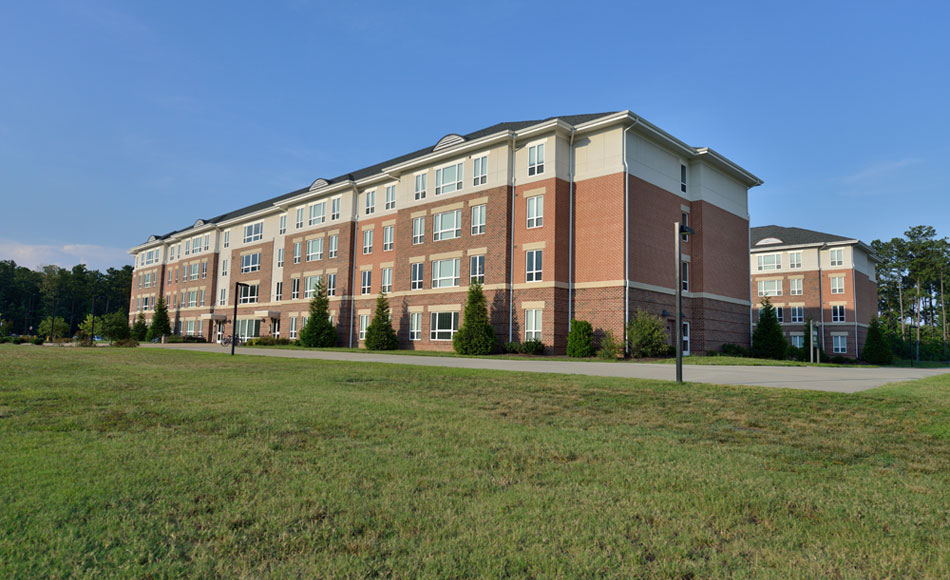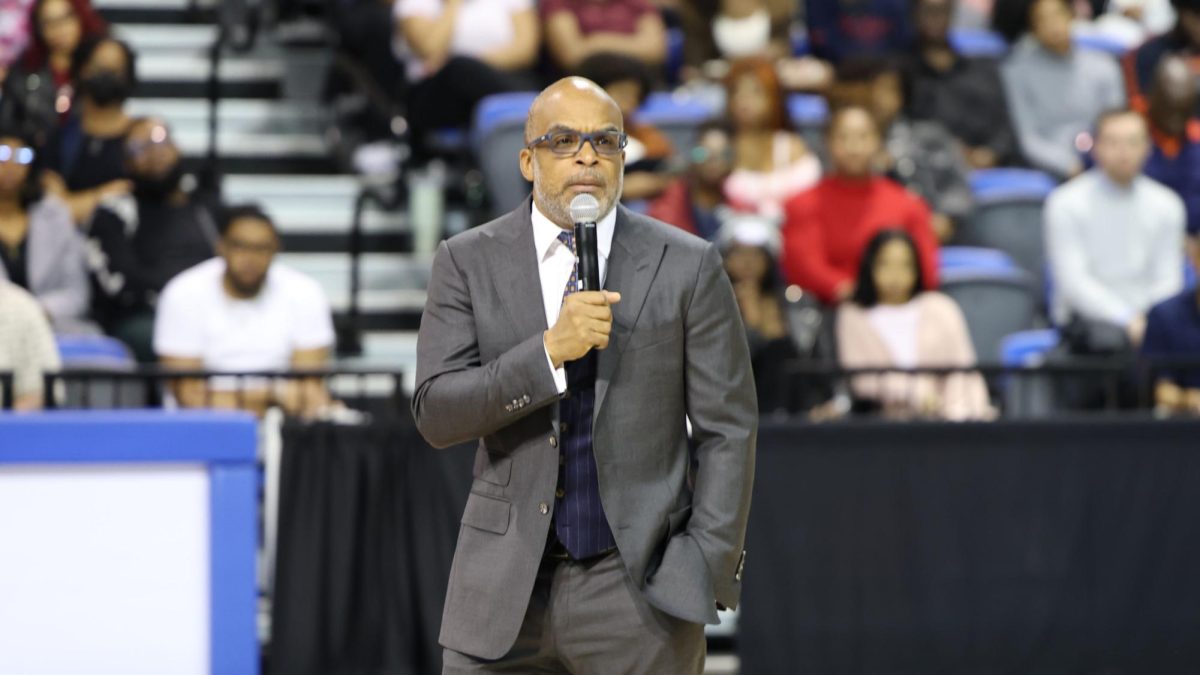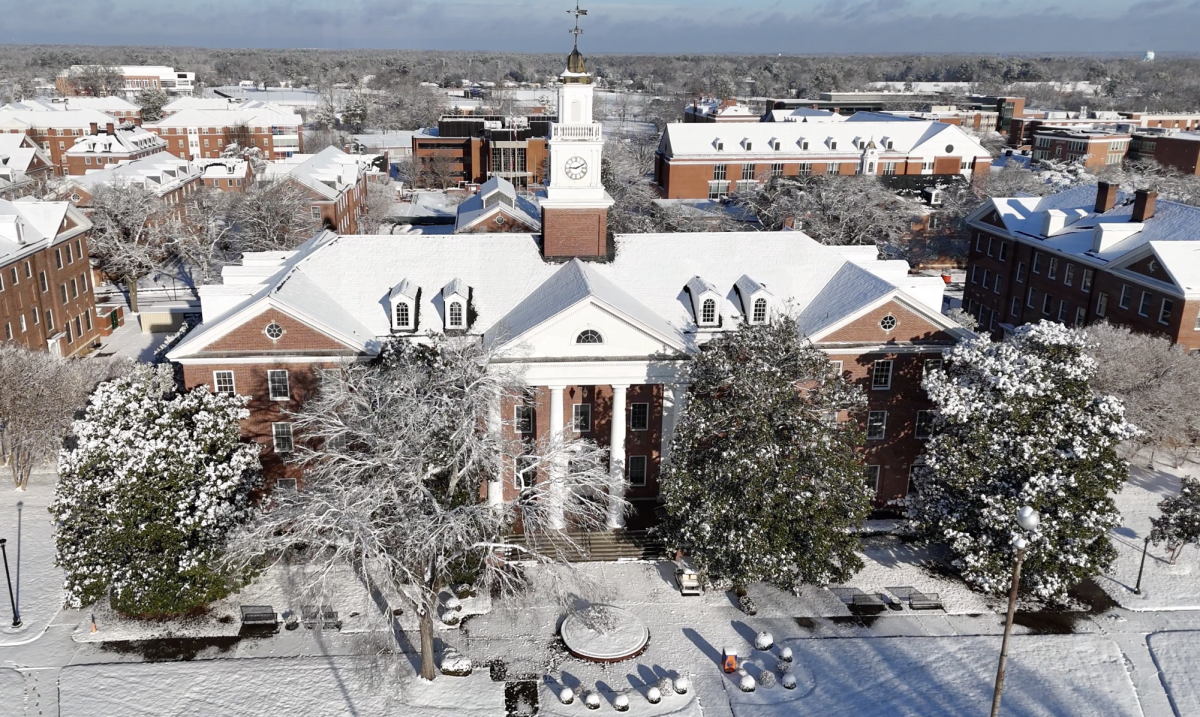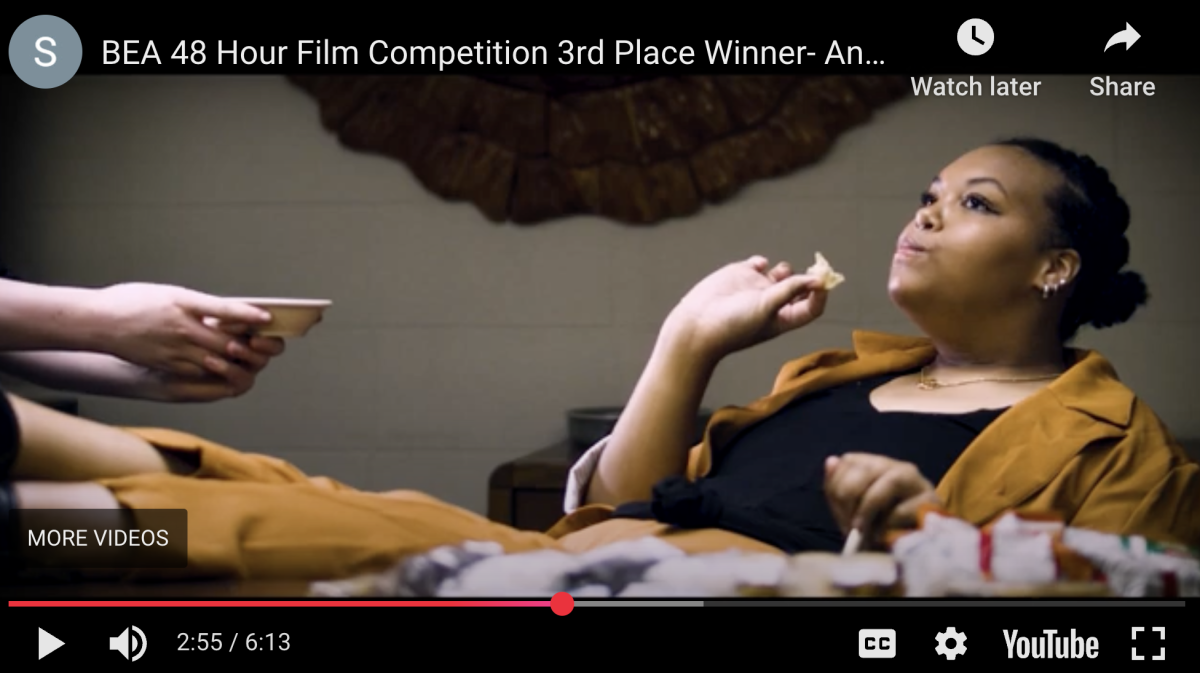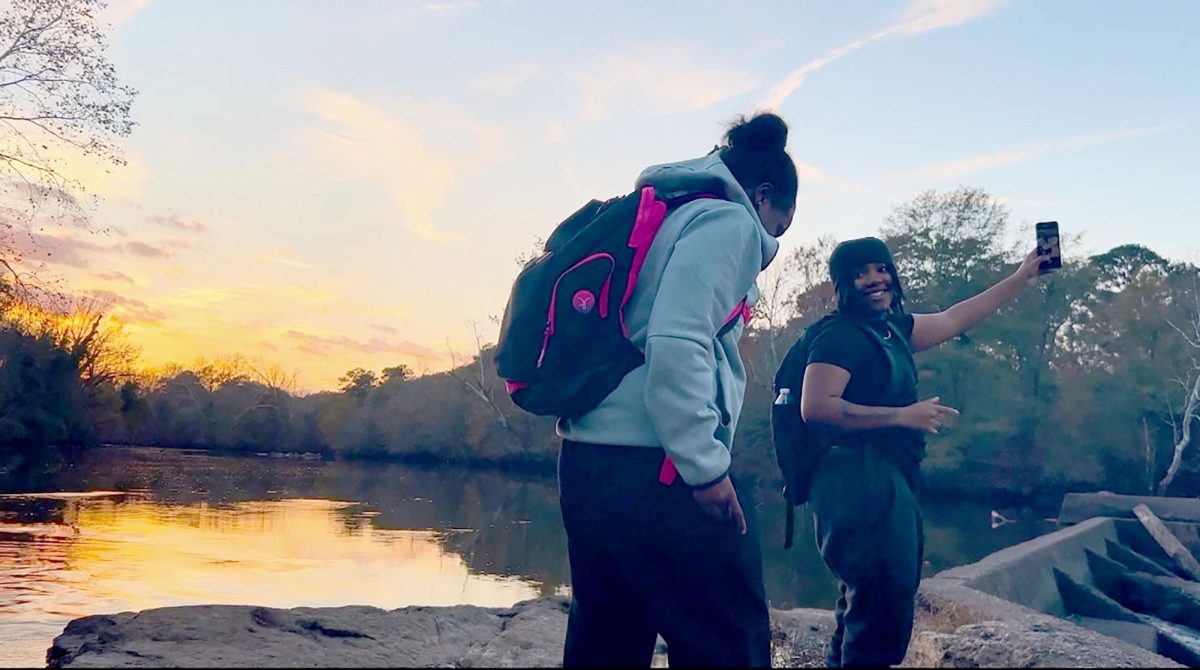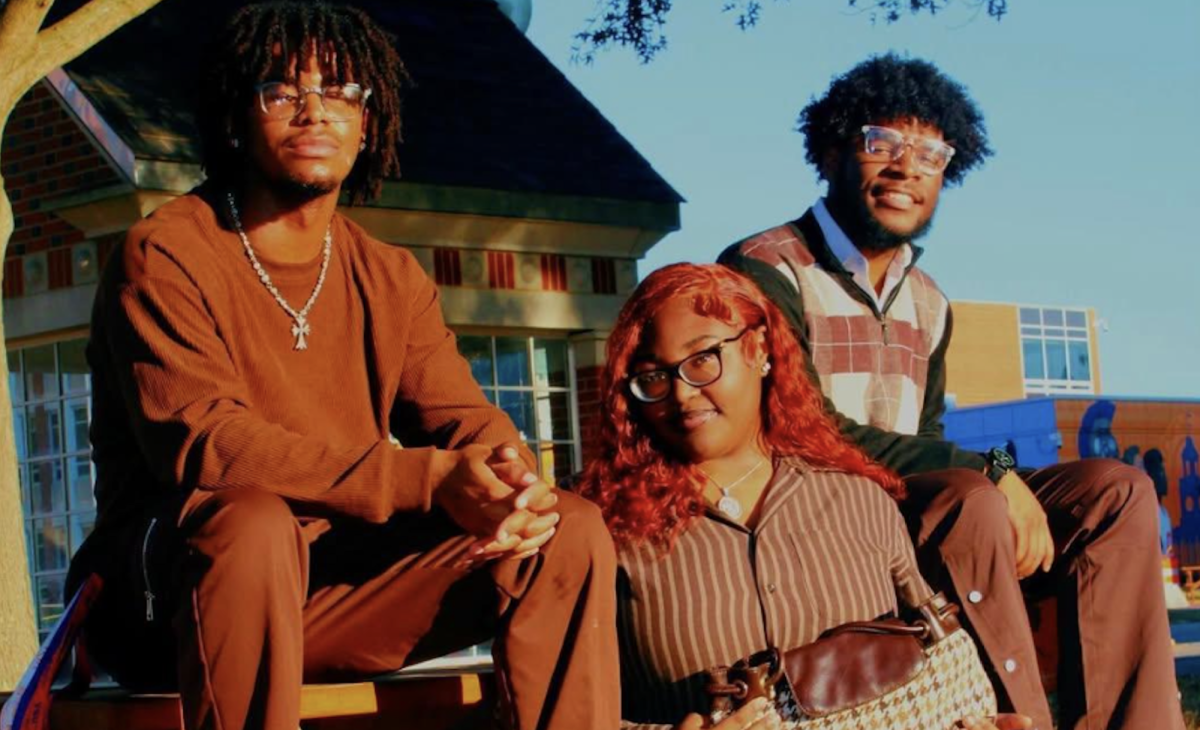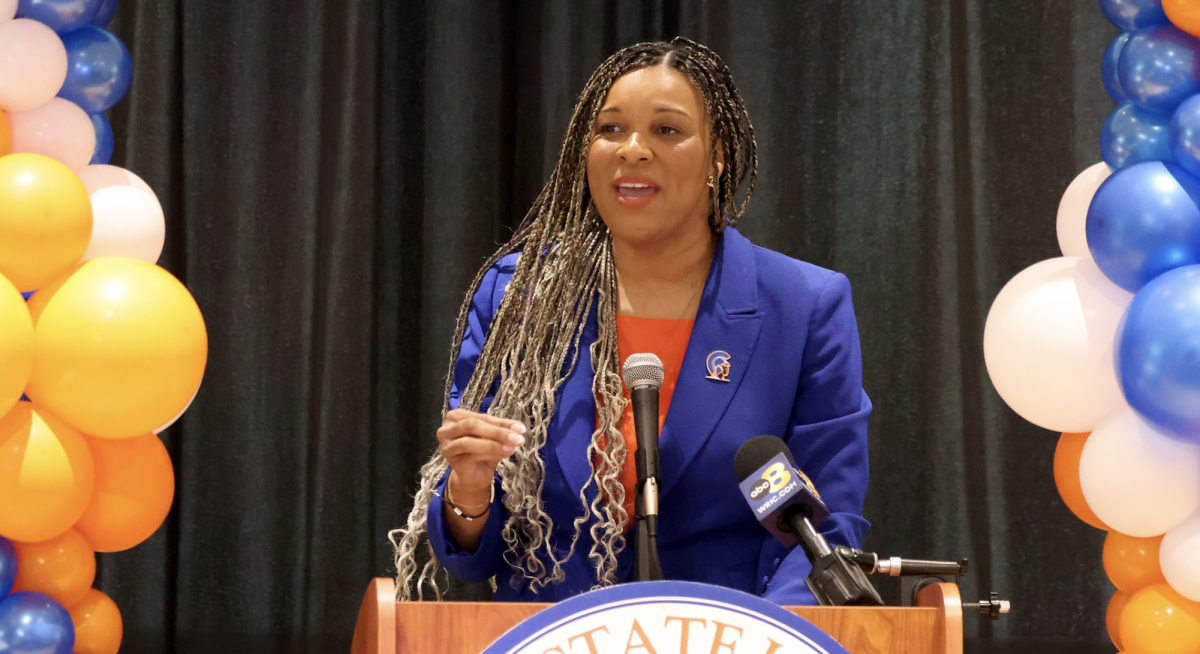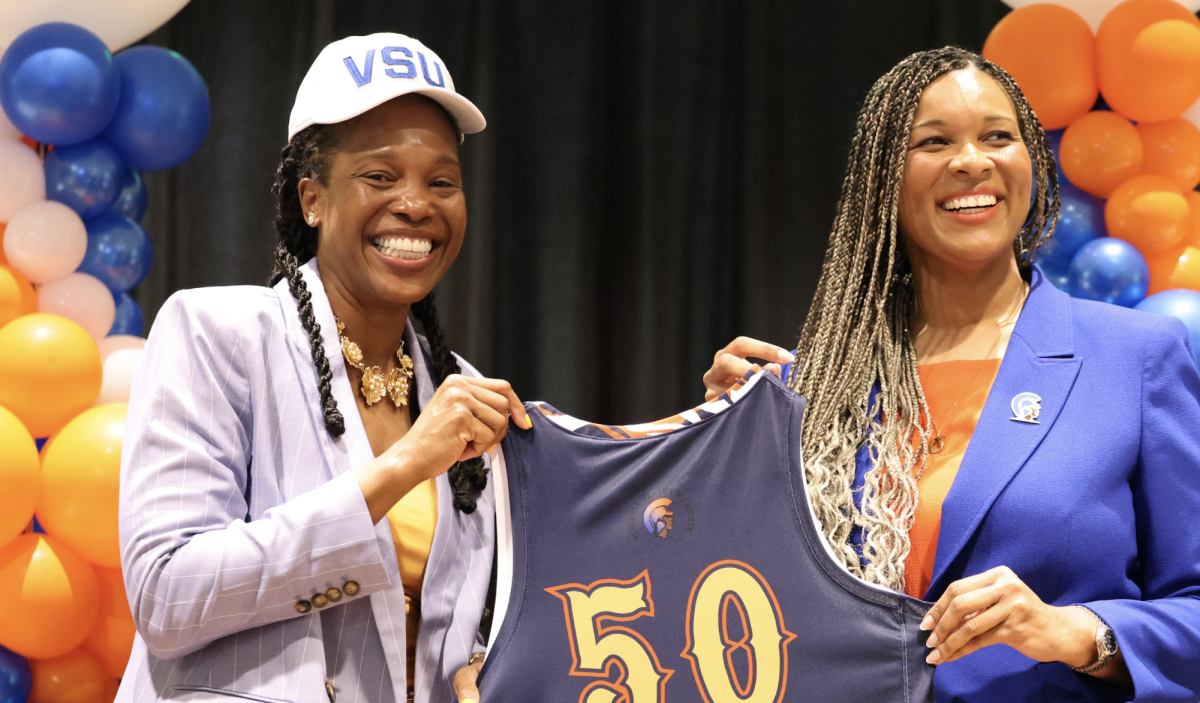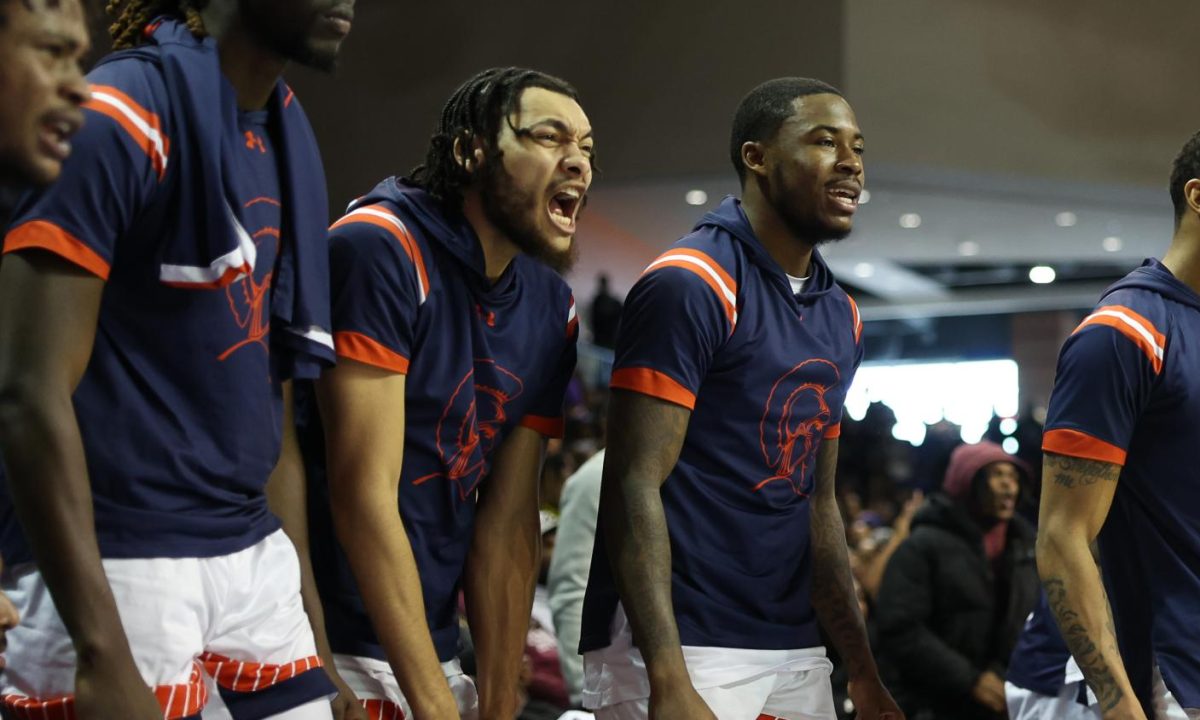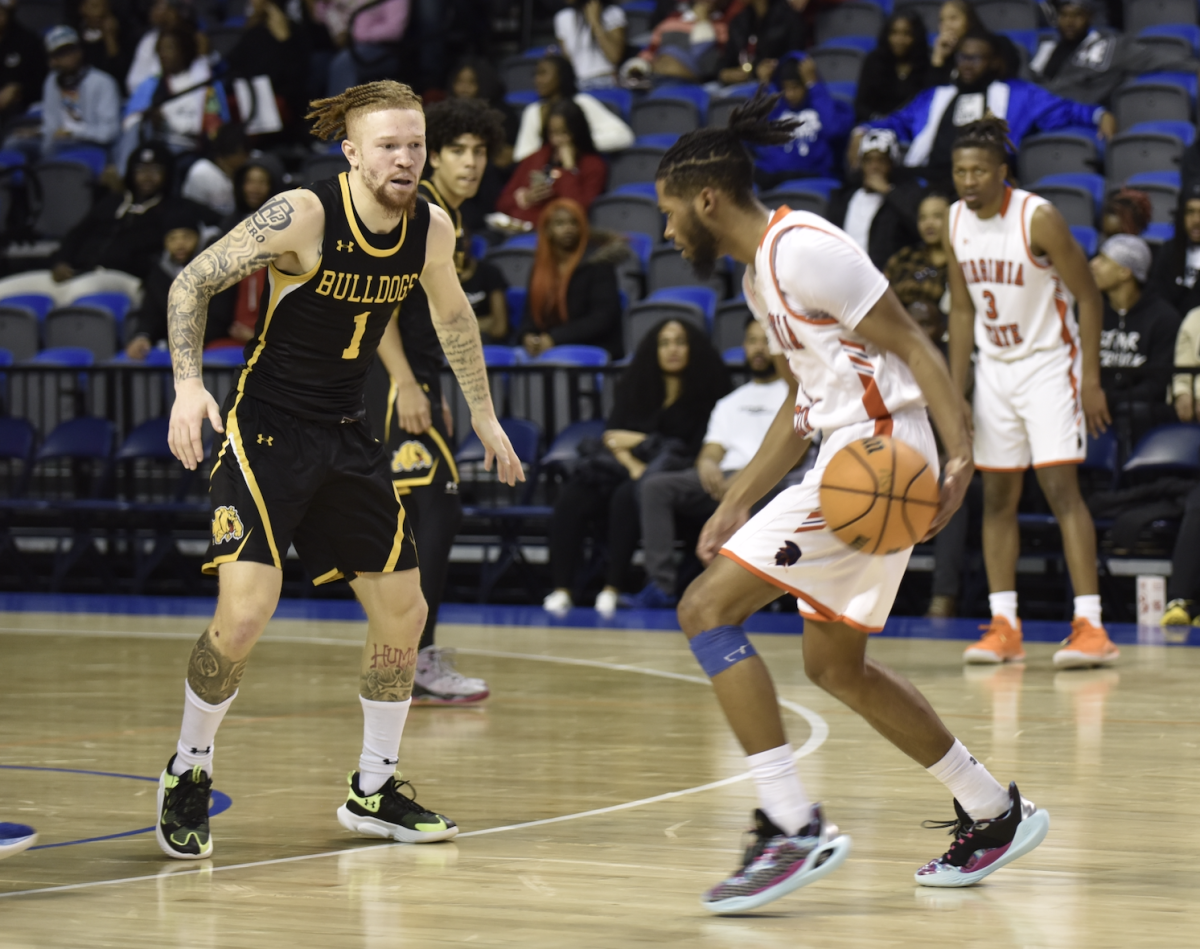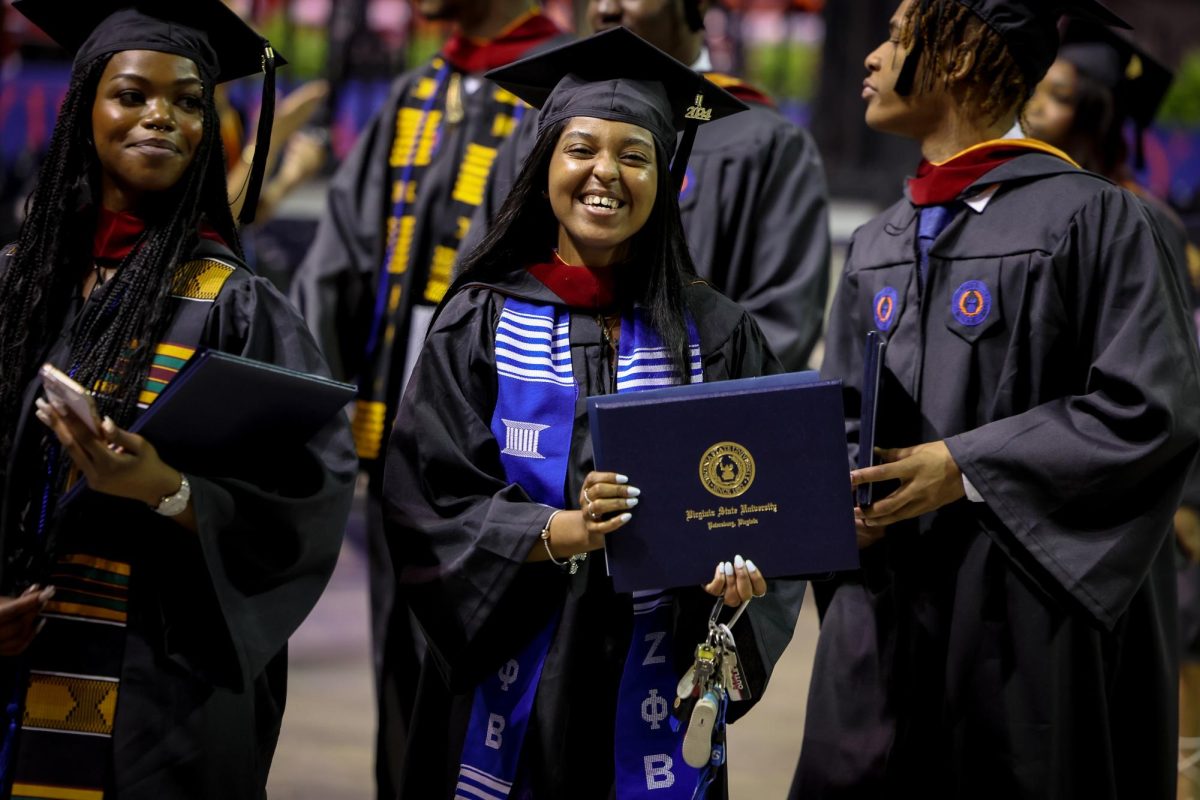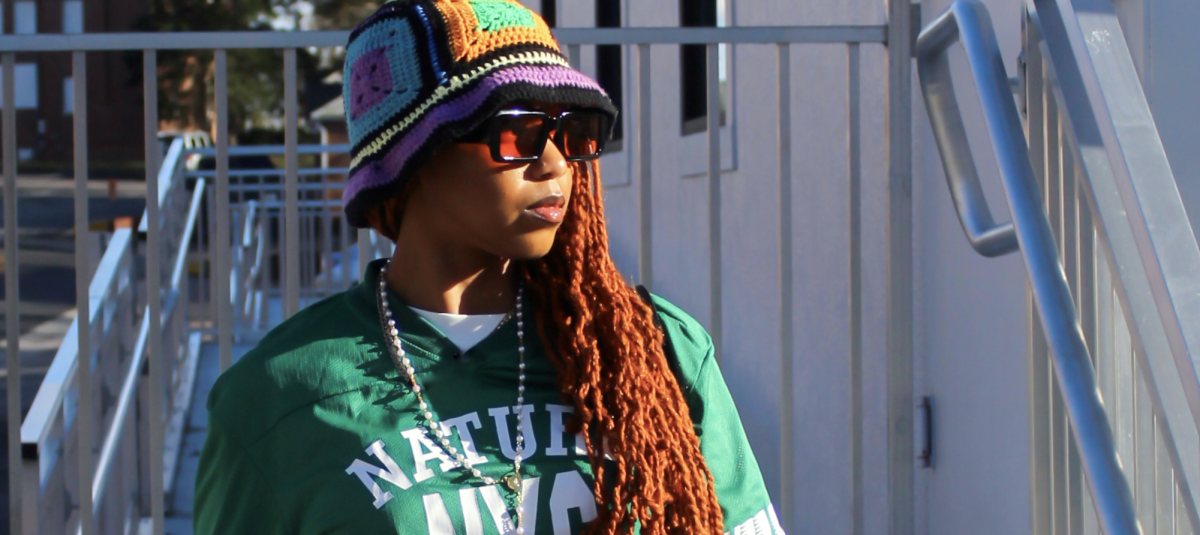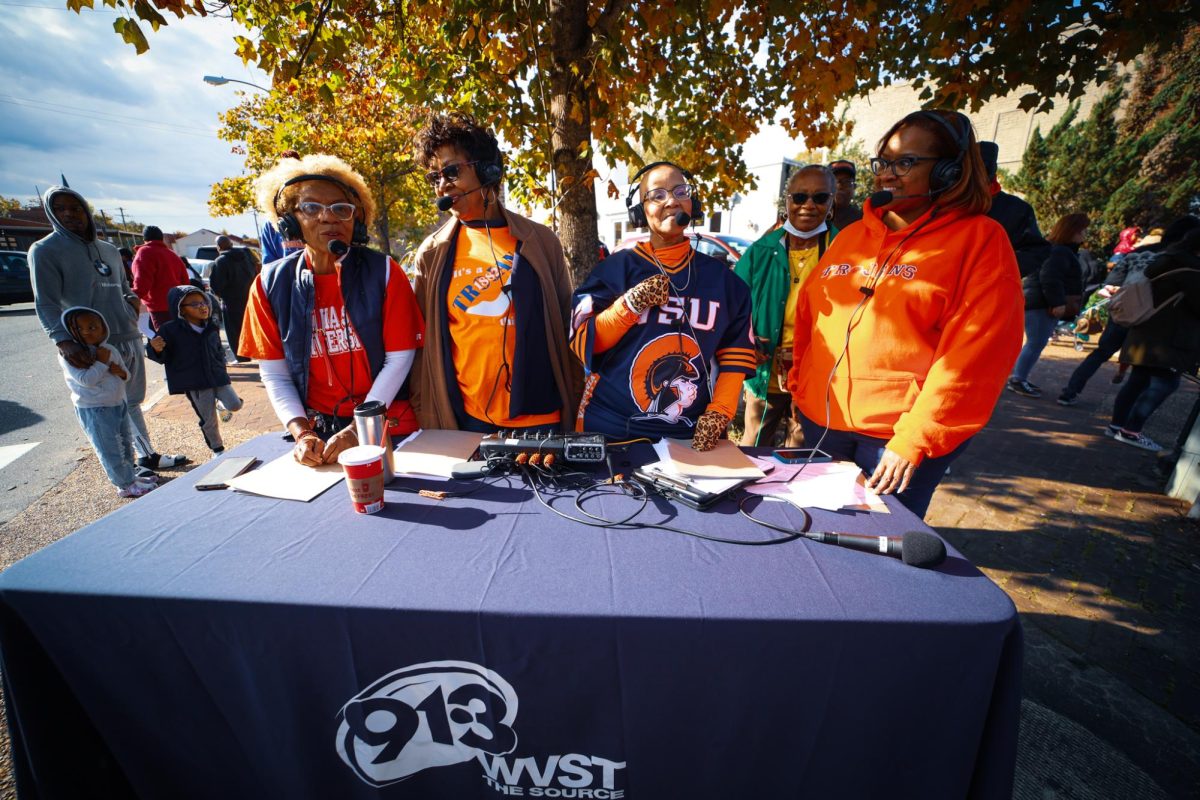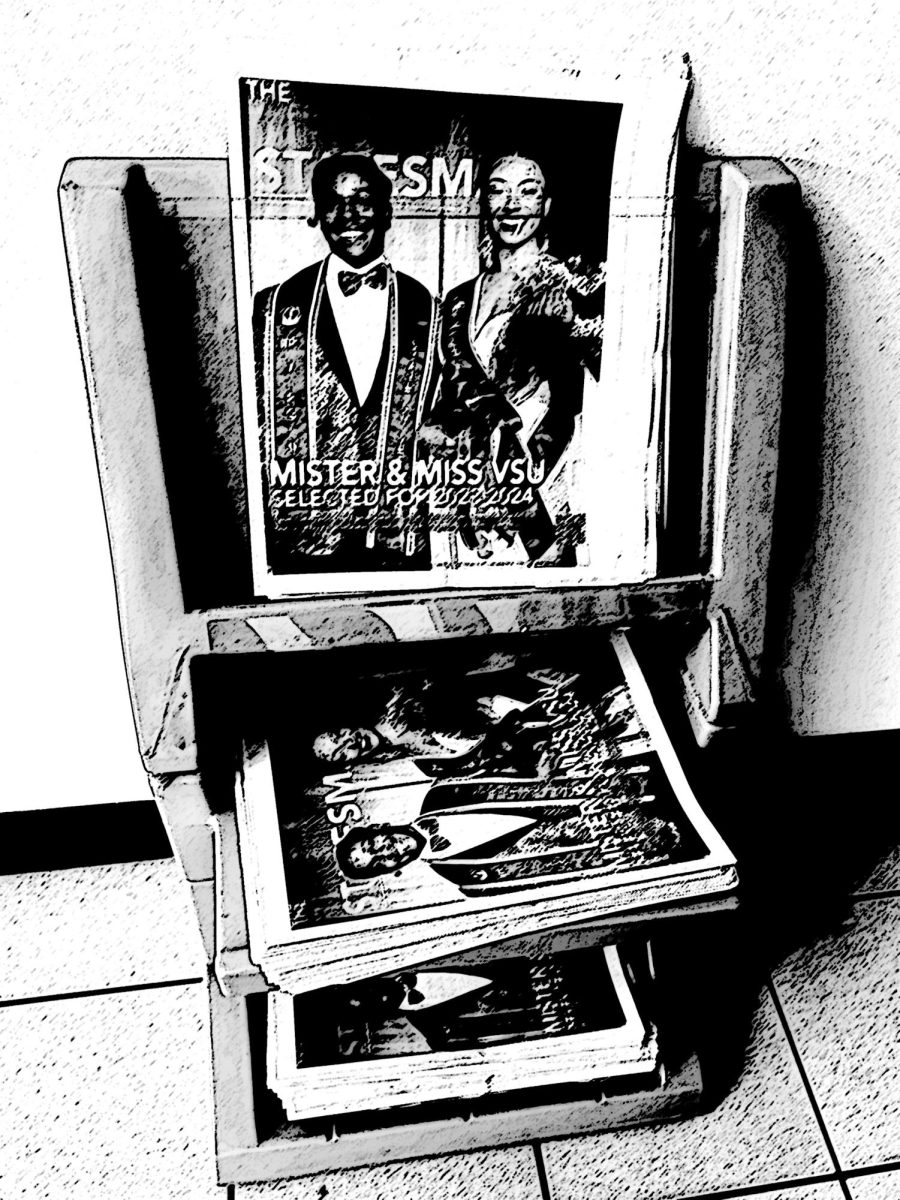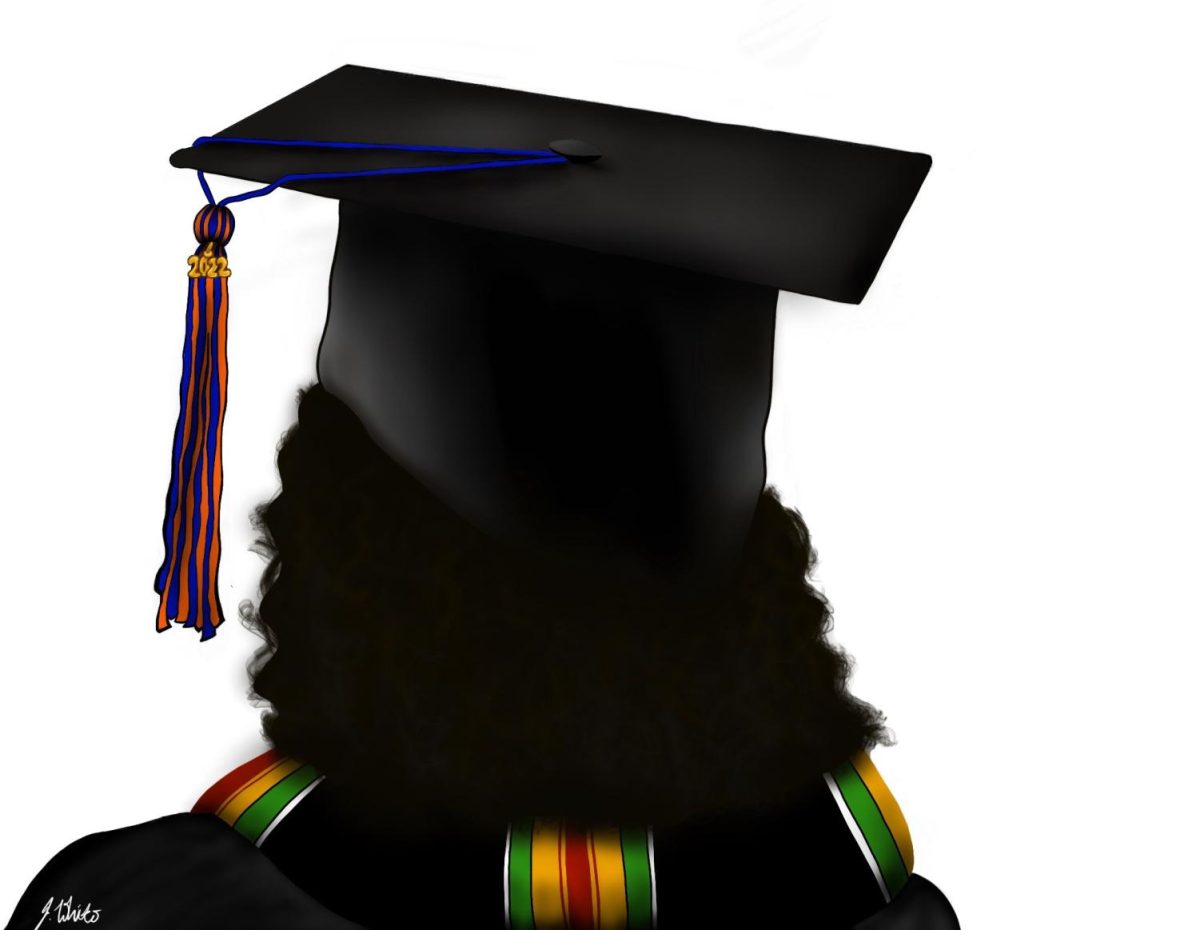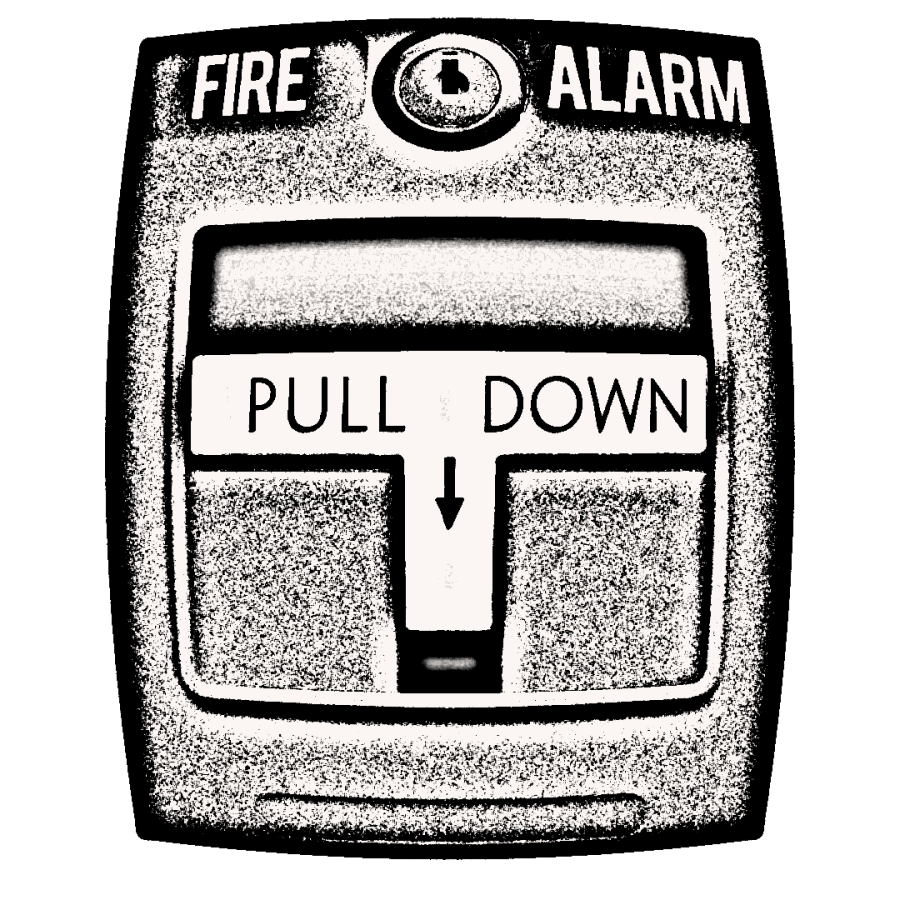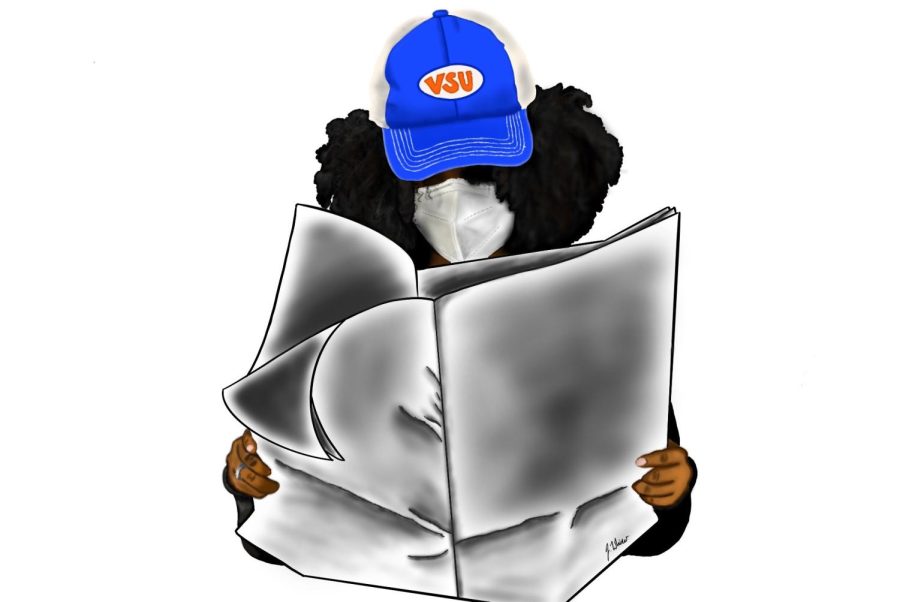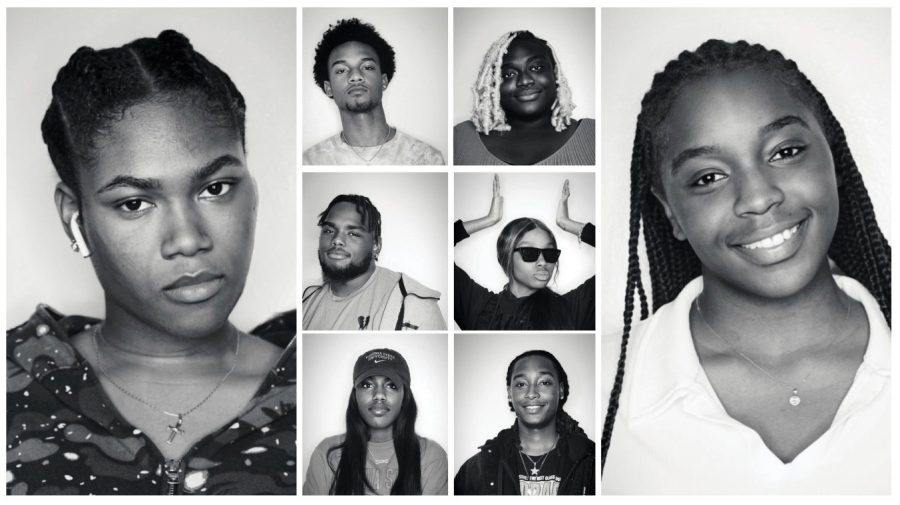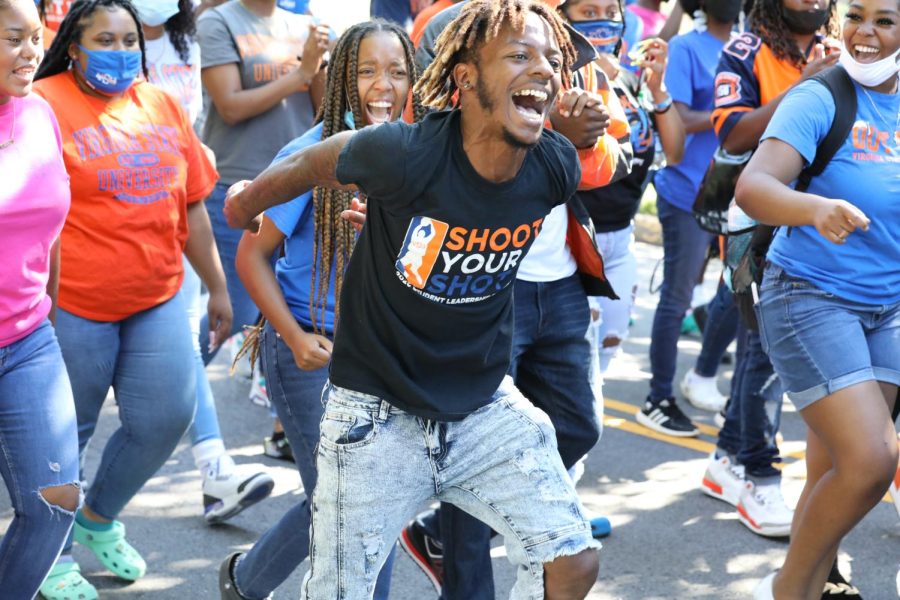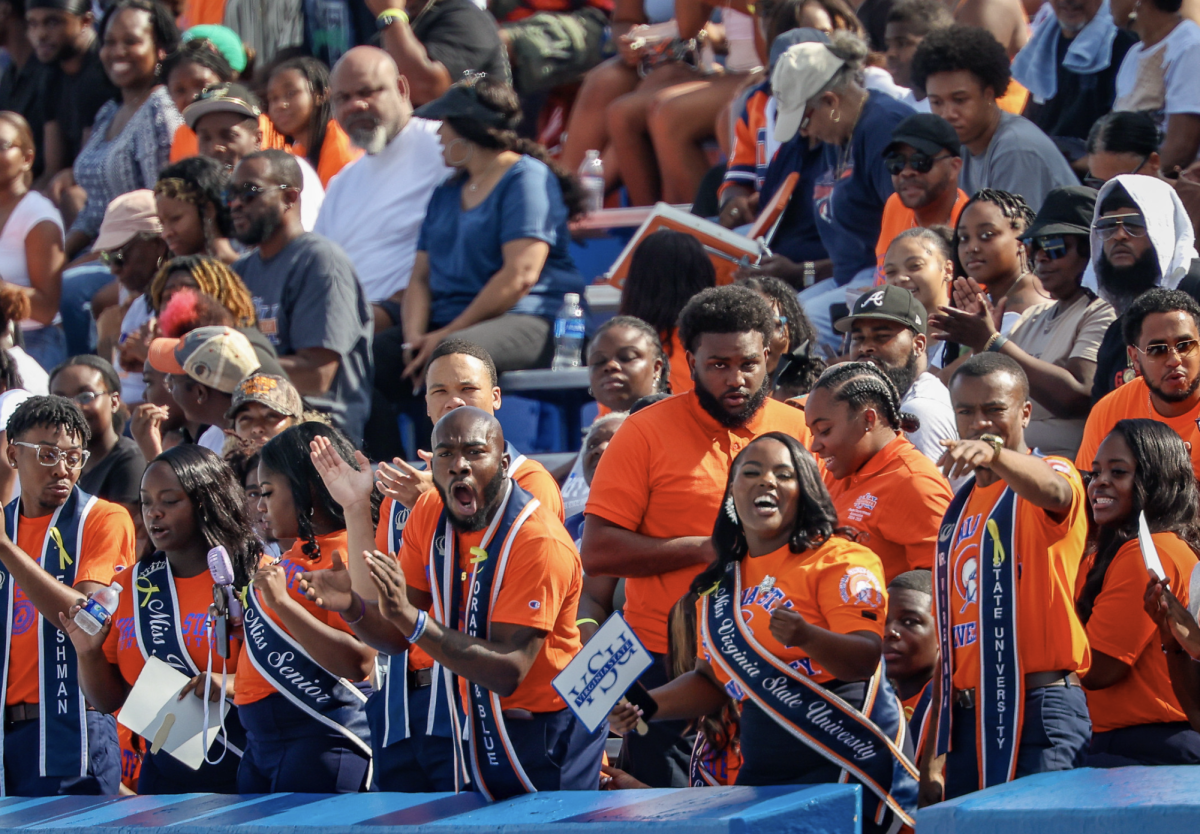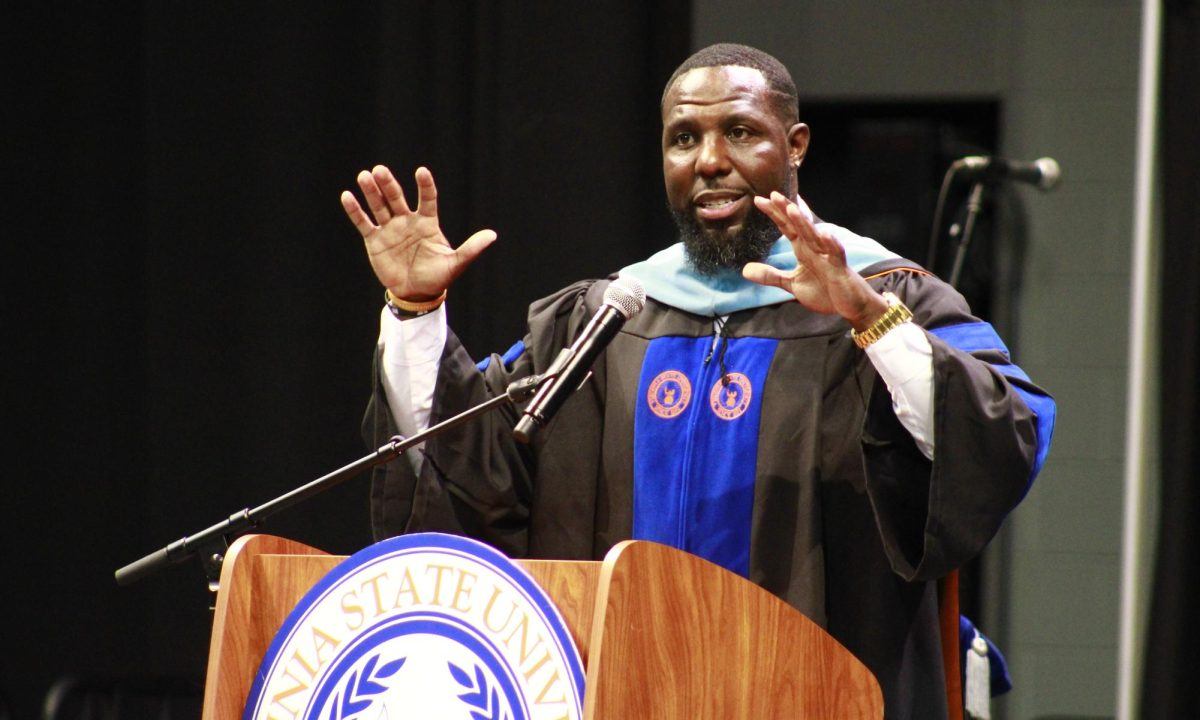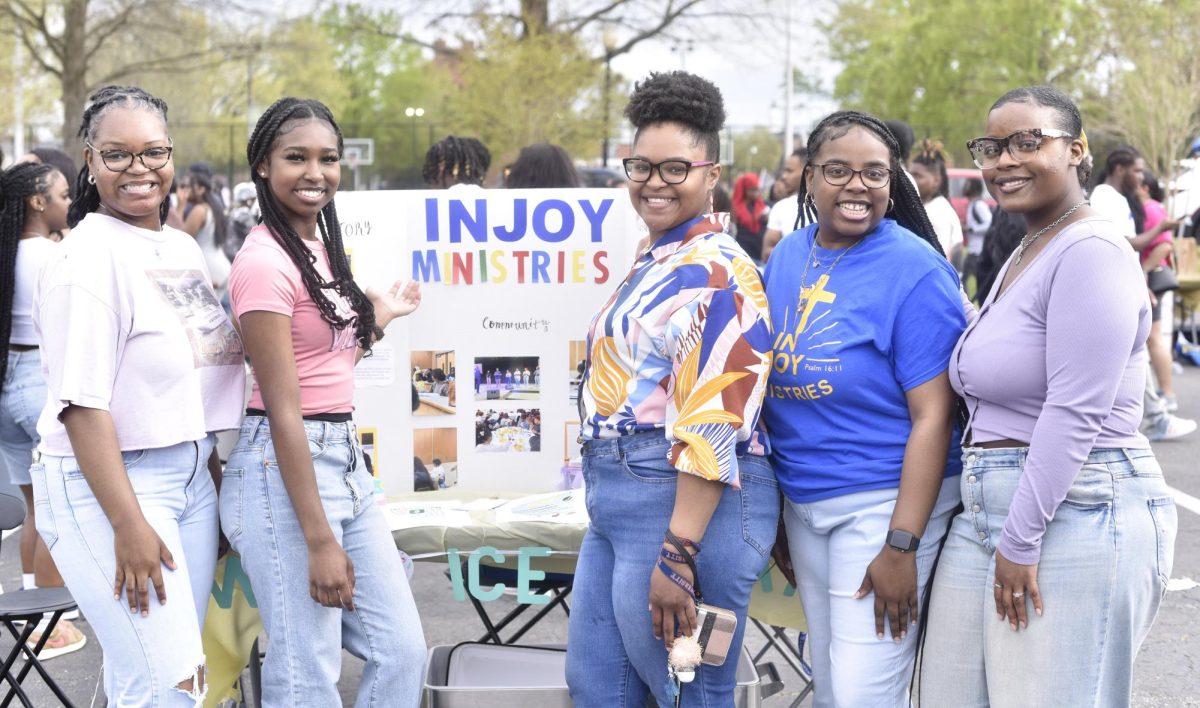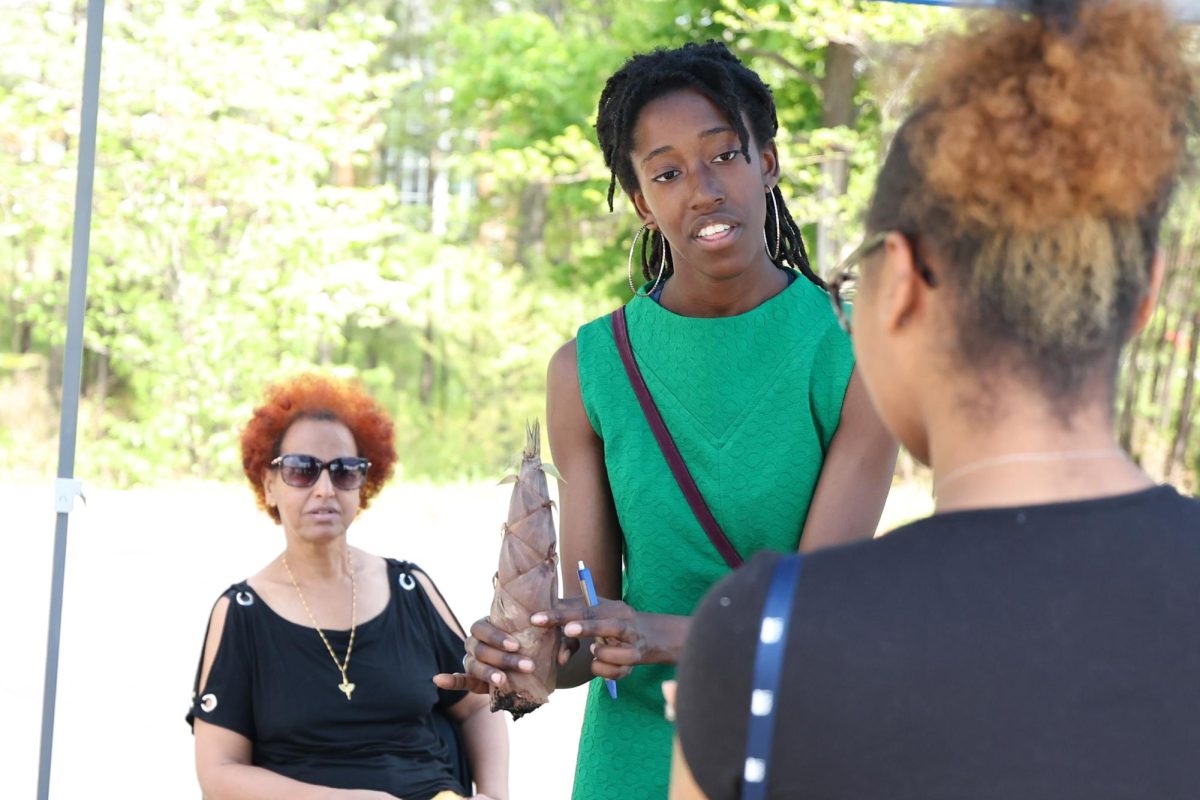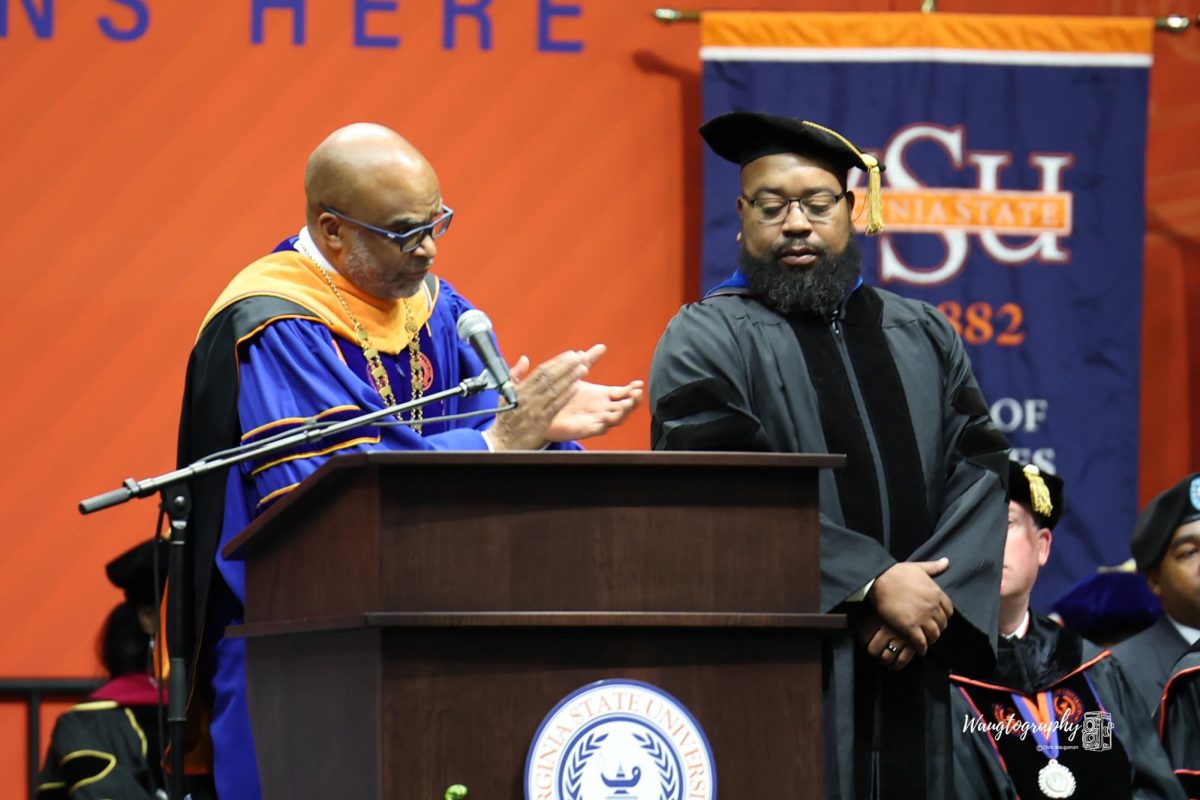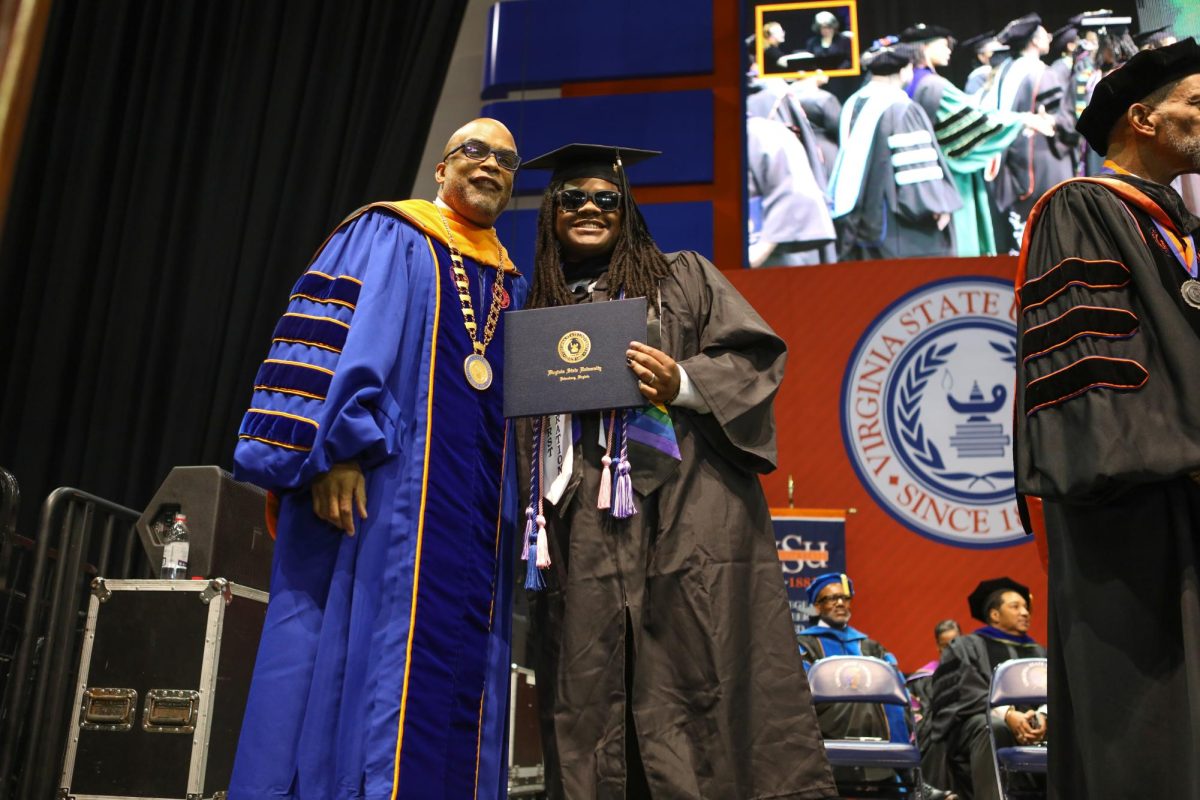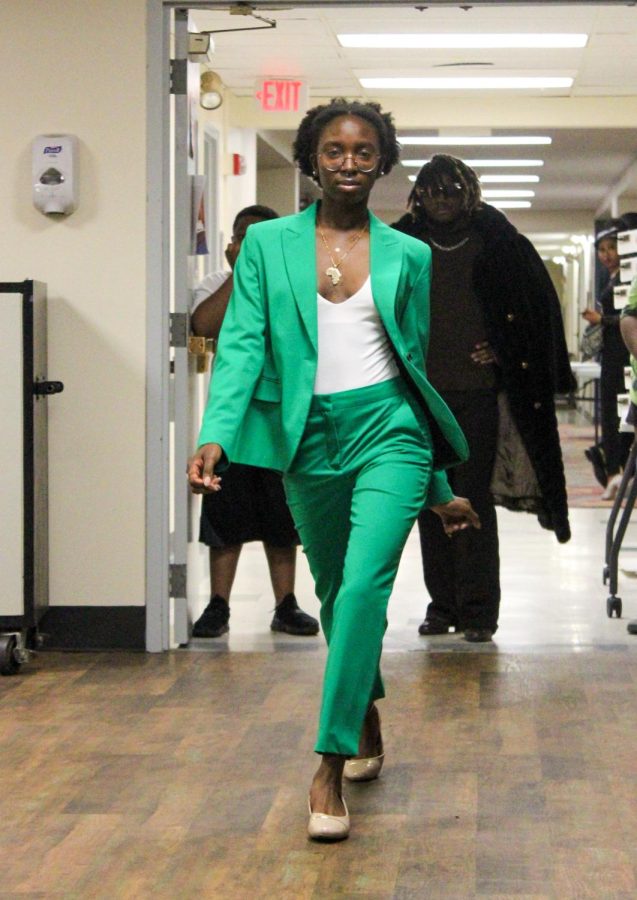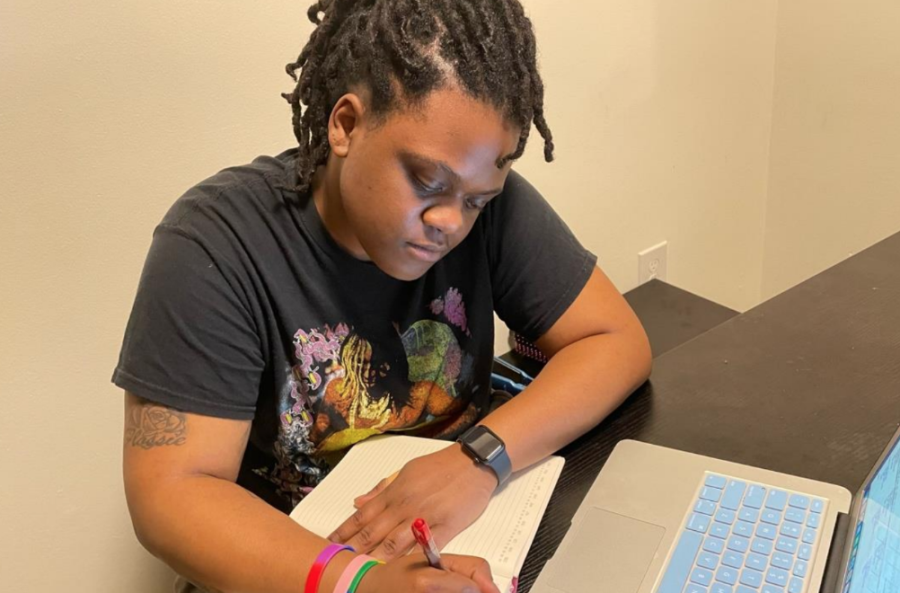Students double back for degrees
Latoya Thomas is hard at work creating her schedule for the fall semester. Photo by Sheridan Phillips.
April 15, 2023
Readmits and grad students reflect on their experiences
PETERSBURG, Va.— Everyone doesn’t have the picture-perfect college life. Suspensions, dropouts, finances and mental challenges are more common than most people believe.
According to ThinkImpact, college dropout rates averaged at 40% for undergraduate students for reasons including mental health, finances, lack of familial support and a myriad of others.
Because students have more consequential matters crippling their minds aside from parties and class attendance, not doing well in school becomes a second-class priority.
It may seem like all is lost after college letdowns but these students turned disappointing times into redemption.
College Dropouts
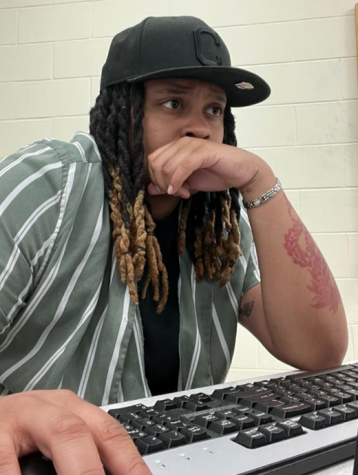
the computer lab. Photo by Sheridan Phillips.
“So I got suspended…,” Tyler Young said. Young is a junior student who came back to Virginia State University. “I was out of school for about a year.” Young recounted the journey he had to take being asked to leave school.
“The police department tried to… say that I was a threat to the school that’s what kinda held me not being able to come back for so long,” Young said.
ThinkImpact reports, like Young, 28% of dropouts were suspended for academic disqualification. A whopping 51% of students dropped out because of financial shortcomings or simply a lack of money all in all.
“I was just working little jobs so that I can have money in my pocket… I wasn’t trying to be broke no more,” said Latoya Thomas, a readmitted junior majoring in Criminal Justice. “I was working because…we had bills…”
Thomas moved off campus in 2019 when she was a sophomore and quickly learned that it was hard to balance a full time job with a full time student schedule.
“I was making money and living on my own … I wasn’t focused on school. It was hard to work overnight and stay in school. I had 15 credits back then,” Thomas said.
Rob Henderson, psychologist, provided insight on how money can be an issue for the average college student.
“Money isn’t everything… ordinary people do not have the luxury of spending thousands, without considering the future…” Henderson said on a Psychology Today blog post.
Taking a Break: Better or Worse
Despite having to part ways with school, both Thomas and Young learned during their break that having a degree would make adulting easier.
“Working made me realize in order to be in certain positions of power you need a degree,” Young said.
The workforce without a degree is infected by low wages, uncertain job security and the lack of advancement.
Young added, “if I wanted to stop working for… people I had to prove myself.”
Thomas shared a similar sentiment.
“I was working dead end jobs and I just was not happy with where I was in my life at that time…” Thomas wasn’t at her best and working mundane jobs didn’t help. “I was feeling complacent… I knew a degree would push me in the right direction…”
Tiara Ramey, senior graduate student, took a three-year break from school after attaining her bachelor’s degree. Ramey had already been accepted into graduate school after completing her undergraduate years, but she chose to put a pin on those plans and opted to take a different route.
“Let me go find my passion first…” Ramey said as she reflected on her post-undergrad experience. She chose to take more time to soul search and find her purpose.
Ramey, Thomas and Young recapped important shifts in their attitudes from leaving school to the new journey ahead.
“In undergrad especially as a student athlete you’re not really thinking much about class you’re thinking more about partying having fun,” Ramey said. She has since grown and matured which helped to improve her approach toward school.
“Now I’m a little older. I’m 26 now and I’m not thinking about partying … I’m just thinking about my grades, getting my degree.” Ramey is no longer a backseat student. She said, “I sit in the front of the classroom now. Before I used to sit in the back and now I’m hungry to learn and ready to absorb as much education as I can.”
Sometimes a break is needed for students to fully appreciate and prioritize their time in college.
“I am… more focused this time,” Thomas said. “I’m making this go around count more. And… my grades are better too so that is a plus.”
Last semester, Thomas scored straight As for the first time in their college career. Young’s horn was blowing a different tune. Students who pause their college careers don’t always return stronger than before. “I got really depressed…” Young recalled. “It was just really hard to stay focused. I was focused on the wrong things.”
Young is among a larger population of students that battle with depression especially in college.
“In recent years, depression and anxiety have afflicted college students at alarming rates… Research shows that nearly 1 in 5 university students suffer from anxiety or depression,” J. Roen Chiriboga and David Rosenberg said on Psychology Today.
What’s next? Students detail hopes for the future
Ramey and Young not only planned to complete undergrad, they want to further their education.
“I mainly wanna further my education to get myself out there and learn more,” Ramey said. She believes her graduate experience was more fruitful than when she first started as a freshman.
“Since I’ve been back I’ve been seeing old faces and meeting new faces and meeting more people and getting more opportunities than I could as an undergrad. It makes me wanna pursue going to school after I graduate in the fall. I can be that person with doctor in front of my name because it’s not just a word. It’s something I earned and took the time out to do,” Ramey continued.
Young planned on getting a master’s degree and embarking on a new career.
“I plan on getting my masters in psychology… I want to be a therapist,” said Young hopefully.
“I just always felt like I was good at many things… As I’m older I realize I don’t have to just be good at one thing so i don’t want to be a computer programmer for the rest of my life. I figured if I find something else that I’m really interested in then go for it.”
These students overcame huge obstacles that could’ve deterred them from getting their degrees.
No matter the circumstance, Ramey, Thomas and Young turned back to Virginia State University to finish strong.

